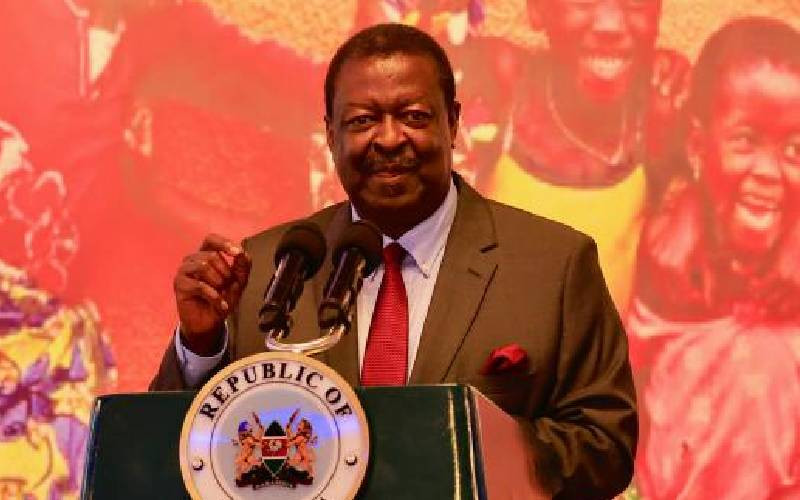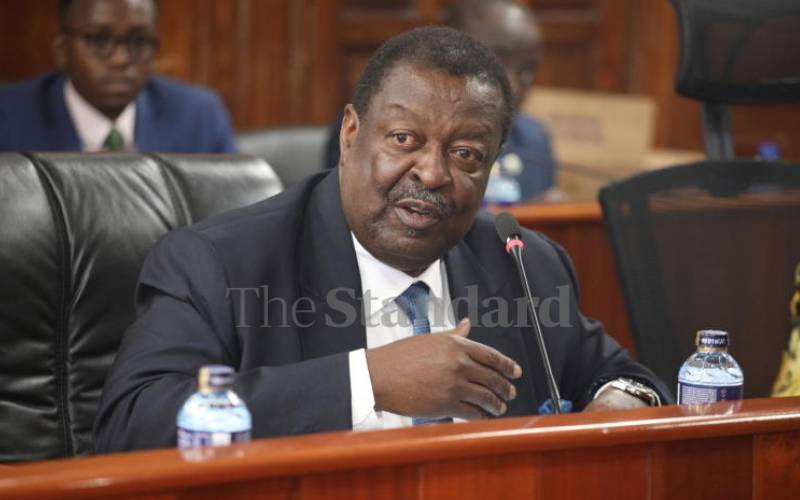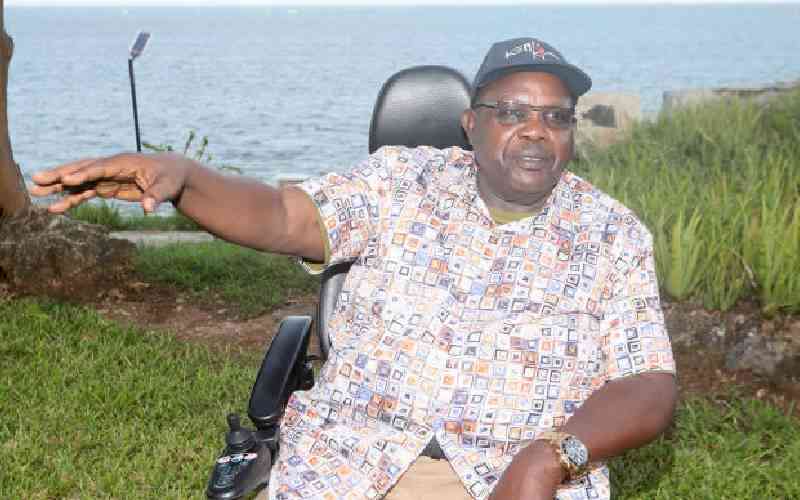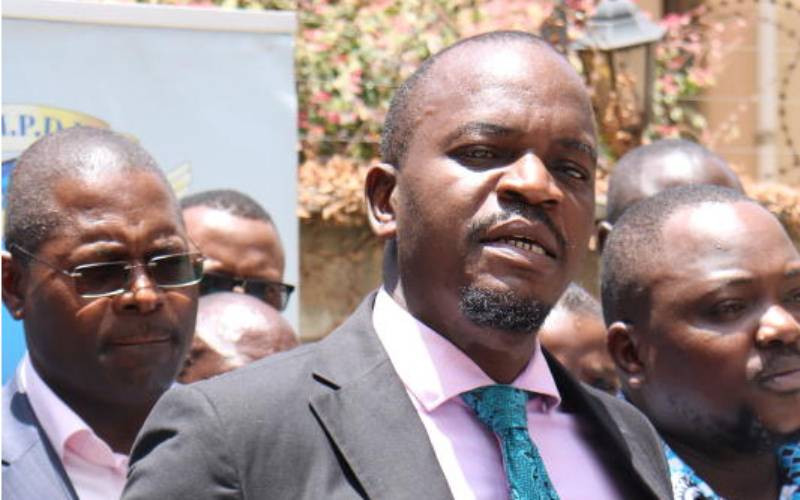President Uhuru Kenyatta yesterday unveiled a new coalition against merchants of corruption alongside strident measures.
If implemented, they would make theft of public resources and bribery in tendering both expensive and painful for the conspirators.
The new measures, which can mainly be condensed to 10, are punitive in nature and promise a crippling effect on graft and its perpetrators, including a five-year ban from any form of business for any company found to have crossed the line drawn yesterday by the private and public sector consortium.
Once again, President Kenyatta declared corruption a standing threat to national security during the function attended by Chief Justice Willy Mutunga, Attorney General Githu Muigai, Senate Speaker Ekwee Ethuro, National Treasury Cabinet Secretary Henry Rotich and Council of Governors Chairman Peter Munya.
Also present at State House was Inspector General of Police Joseph Boinnet, British High Commissioner Christian Turner, Central Bank Chairman Mohammed Nyaoga, and the who's-who in the private sector.
In the tough raft of measures, the ban on companies would also be extended to their directors for breaching a business code of ethics. And such firms and their officials would further be delisted from all business association.
Uhuru said civil servants buying goods above market prices or dealing with blacklisted companies would lose their jobs. They would also be asked to refund the monies.
"I am also directing that with immediate effect no public goods and supplies will be procured at prices above the prevailing market price by any public agency at the national and county level," said the President in an address from State House, Nairobi.
Besides that, he ordered a thorough vetting of the thousands of staff at the Kenya Revenue Authority and those at Customs and Immigration to assess their integrity and competence.
He said an independent team would carry out the vetting to make sure corrupt civil servants are eliminated from the system.
State House will also keep an eye on foreign travel to tame public servants' love for trips as a way of making extra cash in allowances.
"To reverse the perverse incentive of Government officials travelling as a way to earn money, we will introduce travel wallet cards for all State officers and chief executive officers of State corporations. This will also allow my office to monitor the extent of their travel against the value that they deliver in doing so," said President Kenyatta.
Two laws
Uhuru promised to send two laws to Parliament for enactment: One to deal with bribery and the other to deal with the parastatals, the idea being "to reduce opportunities for theft and wastage."
The Anti-Bribery Bill and the Parastatal Reform Bill were handed over to the Attorney General with specific instructions to take them through the enactment process as soon as possible.
Stay informed. Subscribe to our newsletter
To deal with the rampant wastage in public service, the President warned that all those with the authority to incur expenditure would be punished as individuals.
"I am directing that where any public officer has through their action or inaction caused loss of public resources, that a surcharge of the said public officers in accordance with Articles 226(5),201(d); and 232(b) of the Constitution be done," he said.
With public anger at the runaway corruption threatening his Government's survival, and foreign governments upset at the billions being looted by well-connected cartels and their cronies in public service, Uhuru's address was meant to tell the world that his administration was "turning a new leaf" in taming the vice.
Perhaps knowing he has sounded tough before with few results, this time, Uhuru said he would need a "weekly progress report" from his Chief of Staff, Joseph Kinyua.
His excuse for failure of the implementation of previous edicts was "poor co-ordination and the red tape involved in implementing a new constitutional dispensation."
But this time, it was the private sector – through business lobby Kenya Private Sector Alliance—that got the rap.
"For every taker, there's a giver... The figures show that 70 per cent of corruption happens in the procurement departments in Government. The Government does not do business with itself," the President told the rare assembly in his backyard.
He asked the clergy to "declare corruption a sin against God and humanity" and commanded the Education ministry to introduce "ethics and integrity awareness in the public and private education curriculum", the difference being, beginning next year, it would be an examinable subject.
"We will win this fight. We will make it expensive for anyone stealing from Kenyans and denying them education, health, security, infrastructure, water and other services that they work so hard to receive form their Government," he said.
The Head of State declared the vice "a national security threat." "I believe corruption is a standing threat to our national security. The bribe accepted by an official can lead to terrorist attacks. It can let a criminal off the hook for them to return to crime and harm Kenyans. Terrorism itself is a national security threat. The damage to our economy puts millions of lives at peril and undermines our very aspirations as a nation," the President said.
Deputy President William Ruto's absence was very conspicuous. Uhuru also reworked the whole structure of budget-making and hived that function off from the National Treasury, domiciling it in a new Office of Management and Budget.
 The Standard Group Plc is a
multi-media organization with investments in media platforms spanning newspaper
print operations, television, radio broadcasting, digital and online services. The
Standard Group is recognized as a leading multi-media house in Kenya with a key
influence in matters of national and international interest.
The Standard Group Plc is a
multi-media organization with investments in media platforms spanning newspaper
print operations, television, radio broadcasting, digital and online services. The
Standard Group is recognized as a leading multi-media house in Kenya with a key
influence in matters of national and international interest.
 The Standard Group Plc is a
multi-media organization with investments in media platforms spanning newspaper
print operations, television, radio broadcasting, digital and online services. The
Standard Group is recognized as a leading multi-media house in Kenya with a key
influence in matters of national and international interest.
The Standard Group Plc is a
multi-media organization with investments in media platforms spanning newspaper
print operations, television, radio broadcasting, digital and online services. The
Standard Group is recognized as a leading multi-media house in Kenya with a key
influence in matters of national and international interest.








